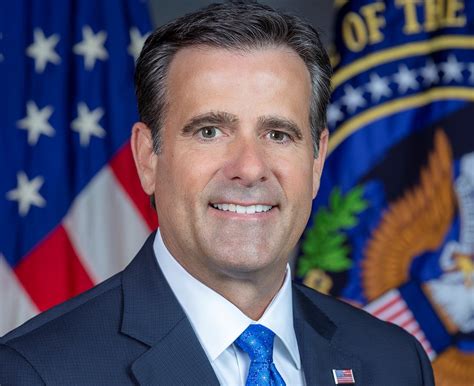A Quote by Abigail Spanberger
The Secure 5G and Beyond Act is a clear step toward developing a nationwide gameplan to mitigate the threat posed by foreign-based 5G companies.
Related Quotes
All of the threat streams that we have, from all aspects, militarily, economically, supply chain issues, foreign investment, technologically, cyber issues, cyber warfare, 5G, telecommunications - China is in all of those and they are the only country to be in that space and the only country that threatens America supremacy.


























